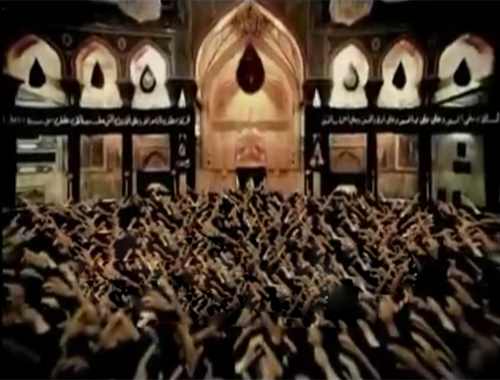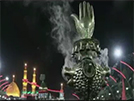SERMON 210 - Someone Asked Imam Ali Ibn Abi Talib, Peace be Upon Him about Concocted Traditions and Contradictory Sayings of the Prophet, Peace be Upon Him Which Were Then in Circulation among the Public. The Imam Said the Following
- Details
- Hits: 1040
Certainly, what is current among the people is both right and wrong, true and false, repealing and repealed, general and particular, definite and indefinite, exact and surmised. Even during the Prophet’s days, false sayings had been attributed to him, so much so that he had to say during his sermon that “Whoever attributes falsehoods to me makes his own abode in Hell.” Those who relate traditions are no more than four categories:
1. The Lying Hypocrites
The hypocrite is a person who makes a show of faith and adopts the appearance of a Muslim. He does not hesitate to sin, nor does he keep aloof from vice. He willfully attributes false things to the Messenger of Allah. If people knew that he was a hypocrite and a liar, they would not accept anything from him and would not consider what he says.
Rather, they would say that he is the companion of the Prophet (p.b.u.h.), has met him, heard (his statements) and acquired knowledge from him. They, therefore, accept what he says. Allah, too, had warned you against the hypocrites and described them fully to you. They have continued after the Holy Prophet (p.b.u.h.). They gained positions with the leaders of misguidance and callers towards Hell through falsehoods and slandering. So, the latter put them in high positions and made them officers over the heads of the people, letting them amass wealth. People are always with the rulers and after this world except those to whom Allah affords protection. This is the first of the four categories.
2. Those Who are Mistaken
Then there is the individual who heard (a saying) from the Holy Prophet (p.b.u.h.) but did not memorize it as it was, but surmised its gist. He does not lie willfully. Now, he carries the saying with him and relates it, depends upon it and claims that: “I heard it from the Messenger of Allah.” If the Muslims come to know that he has committed a mistake in it, they will not accept it from him, and if he himself knows that he is wrong, he will give it up.
3. Those Who are Ignorant
The third man is one who heard the Prophet (p.b.u.h.) ordering to do something, and later the Prophet (p.b.u.h.) forbade people from doing it, but this man did not know it, or he heard the Prophet (p.b.u.h.) forbidding people from doing something and later he allowed it, but this man did not know it. In this case, he retained in his mind what had been repealed and did not retain the repealing tradition. If he knew that it had been repealed, he would reject it, or if the Muslims knew, when they heard it from him, that it had been repealed, they would reject it.
4. Those Who Accurately Memorize
The last, namely the fourth man, is whoever does not speak a lie against Allah or against His Prophet (p.b.u.h.). He hates falsehood out of fear for Allah and respect for the Messenger of Allah and does not commit mistakes, but retains (in his mind) exactly what he heard (from the Prophet (p.b.u.h.)) and he relates it as he heard it without adding anything or omitting anything. He heard the repealing tradition, he retained it and acted upon it and he heard the repealed tradition and rejected it. He also understands the particular and the general and he knows the definite and indefinite and gives everything its due status.
The sayings of the Prophet (p.b.u.h.) used to be of two types. One was particular and the other common. Sometimes a man would hear him but he would not know what Allah, the Glorified One, meant by it or what the Messenger of Allah meant by it. In this way the listener carries it and memorizes it without knowing its meaning and its real intention, or what was its reason. Among the companions of the Messenger of Allah all were not in the habit of putting him questions and ask him the meanings, indeed they always wished that some Bedouin or stranger might come and ask him (p.b.u.h.) so that they would also listen. Whenever any such thing came before me, I asked him about its meaning and preserved it. These are the reasons and grounds of differences among the people in their traditions.











